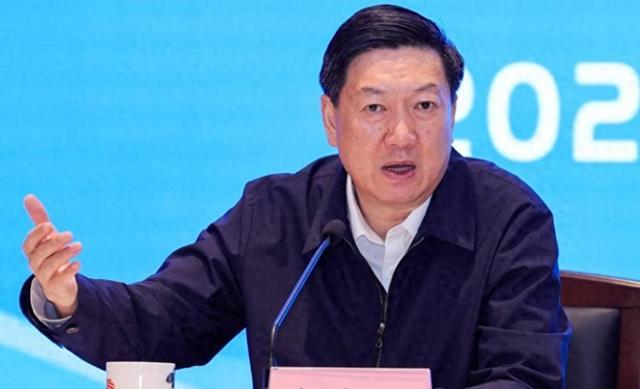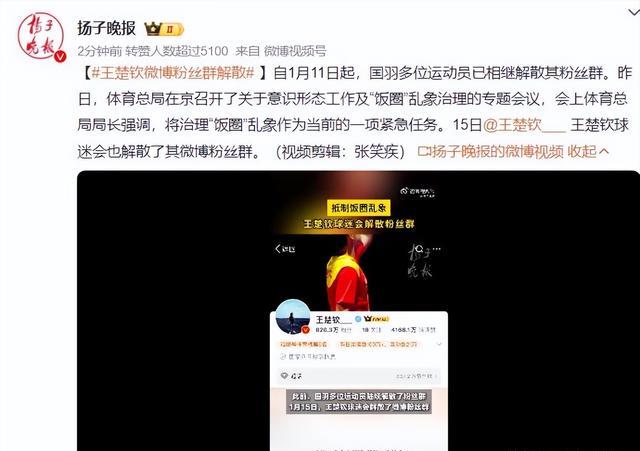In the arena of sports, every move can potentially cause a huge stir. Recently, a major decision by the Sports Administration has sent shockwaves through the calm waters, akin to a giant stone being thrown into a tranquil lake. This time, the Sports Administration has taken decisive action, targeting the fan culture that has become a storm center in table tennis.
Table tennis, as our national sport, has always been highly regarded and loved. Liu Guoliang, a figure of great influence in the table tennis world and the driving force behind the commercialization of WTT, harbors a grand dream of promoting table tennis globally. He aspires to leverage the WTT platform to gain more attention and support for table tennis worldwide, much like the WTA tennis events. However, while the ideal is full, the reality is bony. As WTT develops, fan culture has gradually infiltrated and spiraled out of control, far from what Liu Guoliang had anticipated.

Among various sports, the chaos of fan culture in table tennis is particularly severe. Several Olympic champions from the national team are the focus of fan attention. They strive on the court to win glory for the country and should receive pure respect and support. However, in reality, their daily lives are greatly affected. No matter where they go, fans chase after them, even during training and rest, they cannot find peace. Those fanatical fans, in order to get close to their idols, engage in many irrational behaviors. At the competition site, some fans make a ruckus, completely disregarding the normal order of the game, sometimes even causing interruptions. Even worse, some overzealous fans attack other national team players, behavior that seriously breaches moral and behavioral boundaries.
Faced with this chaos, the Sports Administration has decisively intervened, determined to crack down on fan culture. Although this crackdown covers the entire sports field, table tennis fan culture is undoubtedly the main target. The People's Daily has also expressed its views, showing firm support for the crackdown. At the same time, the national badminton team quickly responded to the call, with players and coaches disbanding fan groups and clearly separating themselves from fan culture. They stated that in the future, they will focus on the court and no longer create sports idols through marketing players, but allow athletes to pursue higher competitive levels in a pure sports atmosphere.

Against this backdrop, the direction of the national table tennis team is under close scrutiny. Currently, the most influential athletes in the national team are Wang Chuqin and Sun Yingsha. With their excellent skills and unique personal charm, they have won the affection of many fans. Whenever they participate in competitions, large groups of fans gather at the venue to support them, creating a grand scene. However, along with the support comes a series of problems. The excessive enthusiasm of fans often leads to disorder in the stadium, causing significant interference to the normal progress of the game.
On January 15th, an important message spread throughout the sports world. According to domestic media reports, after the official crackdown on fan culture, Wang Chuqin demonstrated his wisdom and decisiveness. He deeply understands the current situation and his responsibilities, realizing the potential negative impacts of continuing to maintain a fan group. Therefore, he resolutely disbanded his fan group, a move that is undoubtedly a strong signal of his break with fan culture and a positive response to the call of the Sports Administration and the People's Daily.

Wang Chuqin is only 24 years old and has a long career ahead of him in the field of table tennis. While fan support can quickly enhance his fame, in the long run, this excessive reliance on fans is not conducive to his development. This point is not only clear to Wang Chuqin himself but also deeply recognized by the national team coaching staff. After all, an athlete's true value lies in their achievements on the court and the pursuit of the spirit of sports, not in the adulation of fans.
Now, all eyes are on Liu Guoliang. As the chairman of the Chinese Table Tennis Association and the head of WTT, Liu Guoliang's stance is crucial. His original intention to vigorously develop WTT was good, but now the market-oriented development has seriously affected the construction of the national team. If he completely abandons the fan economy, WTT may suffer huge losses, but it would bring many benefits to the long-term development of the national team. Liu Guoliang needs to make a practical example as soon as possible, and the Table Tennis Association cannot remain silent. Otherwise, it could trigger a series of chain reactions.

Previously, the incident of Li Quanqiang, the former director of the Volleyball Management Center, falling from grace shook the sports world. He was taken away for investigation two and a half years after his retirement, which sparked widespread public concern about certain issues in the sports world. Now, there are even calls for an official thorough investigation into the shareholding issues of WTT, putting even greater pressure on Liu Guoliang and the national team.
During the upcoming Los Angeles Olympic cycle, the national team's strategy is still centered around Olympic champions like Wang Chuqin, Sun Yingsha, and Wang Manyu, while vigorously cultivating young players such as Lin Shidong and Kuai Man. However, whether the Table Tennis Association will undergo significant changes due to this crackdown on fan culture is something worth watching. Moreover, there may be personnel changes in the national team coaching staff. These changes, like dominoes, affect each other profoundly.
At a time when the Sports Administration is taking strong action and the People's Daily has made its position clear, the national table tennis team stands at a critical crossroads. How the future path will unfold not only concerns the reputation and development of the national team but also the style and image of the entire sports world. Every decision and action will become a focal point of public attention. We will wait and see how the national team navigates this transformation to achieve new breakthroughs.
With Wang Chuqin's disbandment of his fan group setting an example, people are also looking forward to the actions of other national table tennis players. Will they follow suit, bid farewell to fan culture entirely, and focus on improving their competitive levels? How will Liu Guoliang respond to the current situation and balance the development of WTT with the interests of the national team? There are no answers to these questions, but one thing is certain: the future of the national team is filled with challenges and opportunities.
Beyond the court, national table tennis players must also face public opinion and expectations. They must not only demonstrate superb skills on the court but also serve as role models in terms of character and behavior. For the vast number of fans, they should also rationally view their favorite players, giving them more space and support so that they can grow in a healthy and positive environment.
The story of the national table tennis team continues, with each new change potentially sparking new thoughts and discussions. Whether it is the players, coaches, fans, or managers in the sports world, everyone plays an important role in this transformation. As observers and witnesses, we will continue to pay attention to every step of the national team's development and look forward to their creation of more brilliance on future courts.